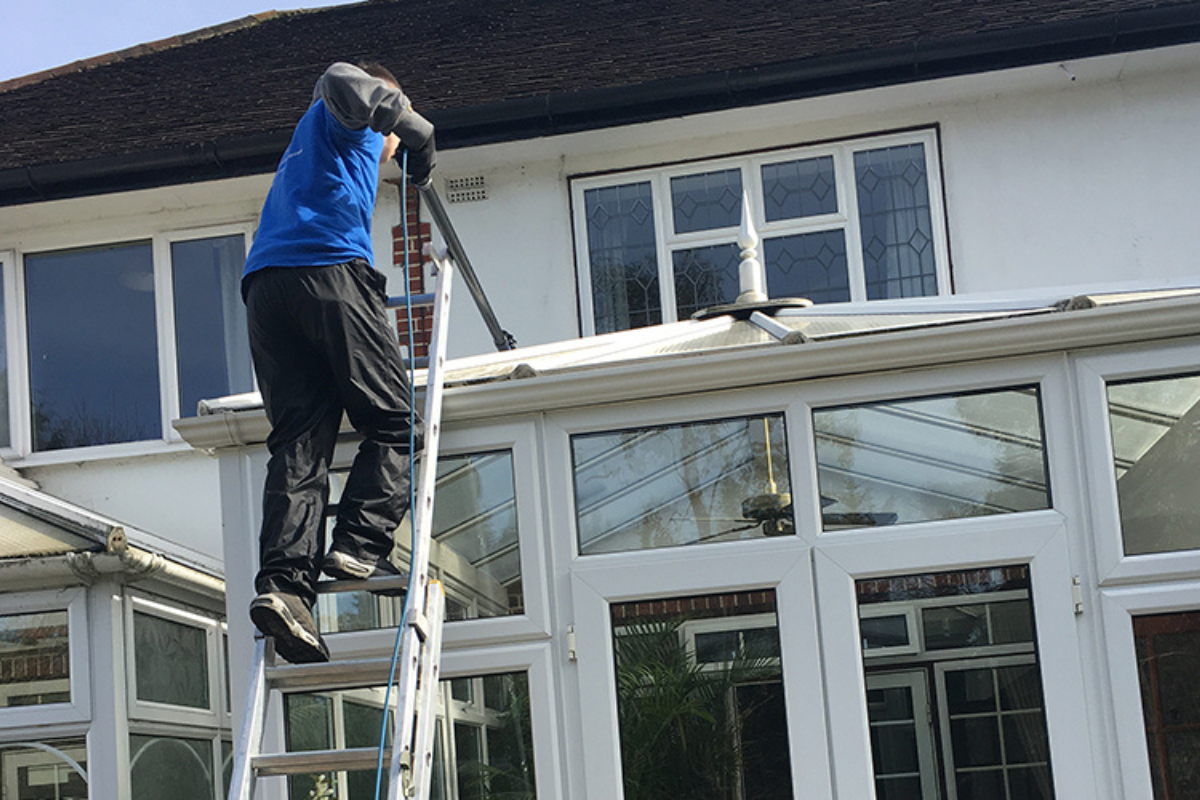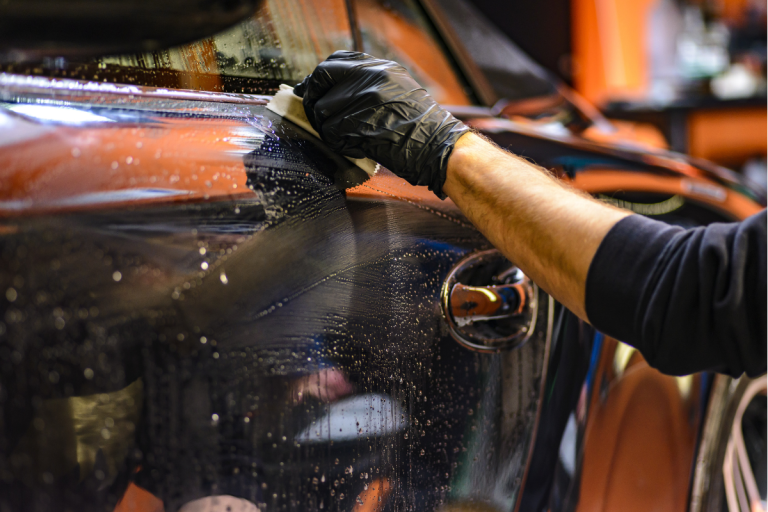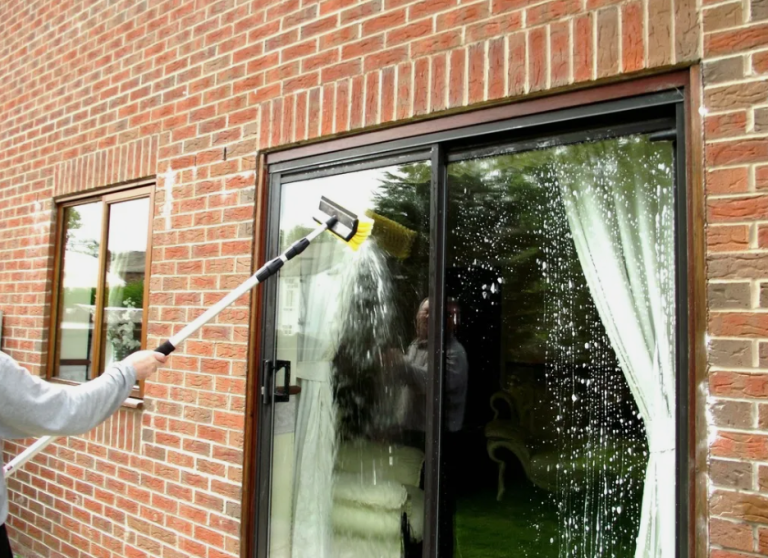How to start a Conservatory Cleaning Business
Starting a conservatory cleaning business can be a great way to earn a regular income while working for yourself. Conservatories get filthy over time, covered in algae, moss, and bird droppings. Many homeowners don’t have the time, tools, or confidence to clean them properly, which is where you come in. With the right approach, you can build a successful business with repeat customers and a steady income.
According to UK government statistics, 18% of British homes have conservatories—that’s nearly one in five households [source]. This means there’s a large potential customer base for conservatory cleaning services, especially as many of these structures are now ageing and require regular maintenance to keep them looking their best. Homeowners who take pride in their property or are planning to sell often look for professional cleaning services to restore their conservatories to their original condition, creating a steady demand for this type of work.
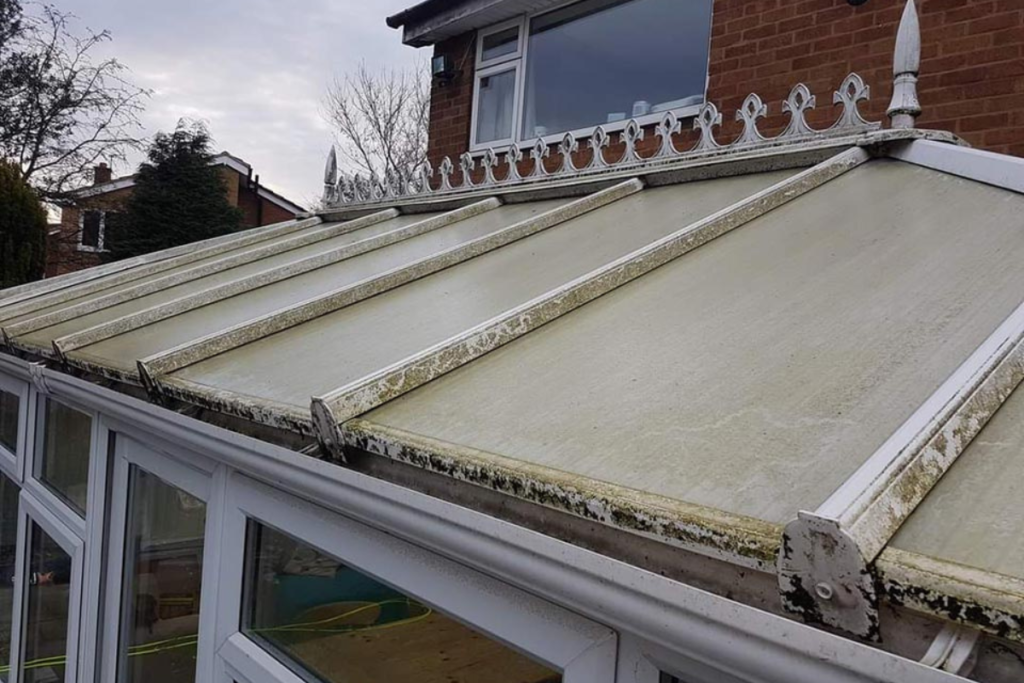
Getting Started
You don’t need formal qualifications to start a conservatory cleaning business, but you will need the right equipment, a good work ethic, and some knowledge of safe working practices. You’ll also need to be comfortable working at heights and handling ladders or telescopic cleaning tools.
Unlike a normal window cleaning business, conservatory cleaning is a more specialist niche. The job requires more than just a squeegee and soapy water—it often involves removing stubborn algae, moss, and dirt from roofs, frames, and gutters, sometimes using purified water systems and specialist cleaning products. This means homeowners are more likely to hire a professional rather than attempt the job themselves, creating a strong demand for reliable conservatory cleaners.
The first step is to check demand in your area. If you live in a town or city with lots of homes that have conservatories, you’re in luck. However, even if conservatories aren’t as common in your area, you can offer other exterior cleaning services like gutter, soffit, and fascia cleaning to expand your customer base.
A great way to gauge interest and start collecting potential leads is by using market research on Facebook. Many towns and neighbourhoods have community Facebook groups where people ask for recommendations for local services. Join these groups and create a simple post asking, “Would you be interested in a professional conservatory cleaning service in the local area?” or “How often do you get your conservatory cleaned, and would you use a professional service?”.
Not only will this help you understand the demand, but people who comment or like your post are potential customers when you launch your business. You can also note common concerns or preferences from the replies, helping you shape your services and pricing. If the response is strong, you’ll know there’s a good market for your business.
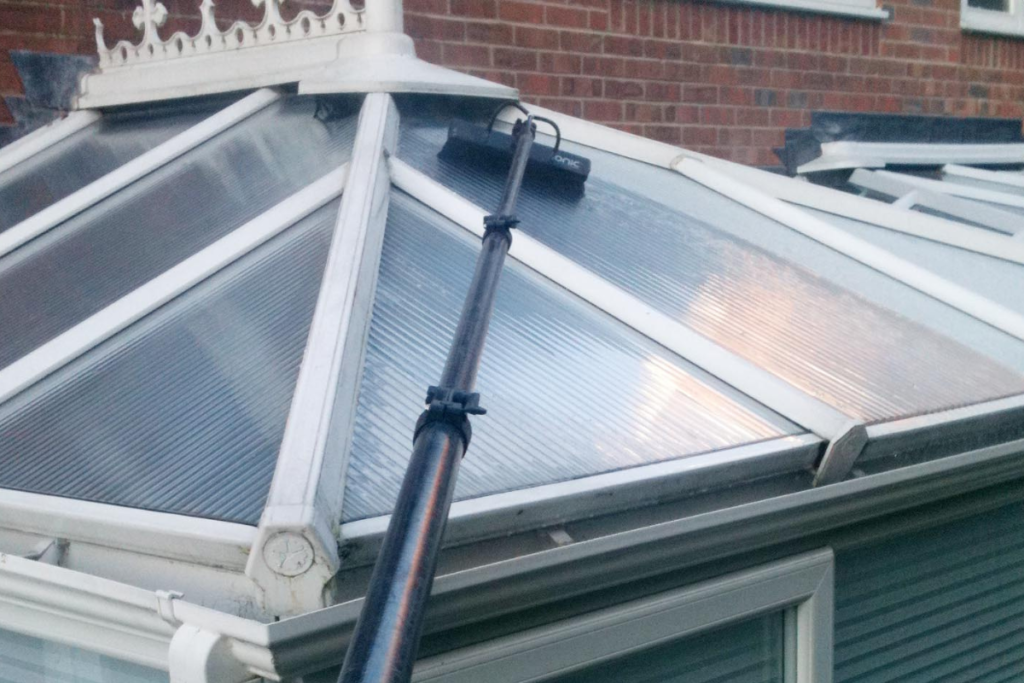
Equipment You’ll Need
Investing in the right tools will make your job easier and ensure a professional finish. The basics include:
- A water-fed pole system – This allows you to clean high-up glass without ladders and is a safer, more professional option.
- A pressure washer – Useful for cleaning UPVC frames, patios, and driveways while offering an extra service.
- A telescopic brush and squeegee – Ideal for manually cleaning glass panels.
- A supply of purified water prevents streaks and watermarks on glass.
- Ladders and safety equipment – Harnesses and stabilisers for high conservatories.
- Cleaning solutions – Specialist conservatory roof cleaner and UPVC restorer.
- Microfibre cloths and scrapers – For detailing and stubborn marks.
Good quality equipment isn’t cheap, but it will pay off in the long run. If funds are tight, consider second-hand gear or leasing certain items.
Insurance and Legal Considerations
To operate professionally, you need public liability insurance. This protects you if a customer claims for damage or injury caused during a job. Aim for at least £1 million in cover, though higher may be required for commercial contracts.
If you plan to hire employees, employers’ liability insurance is legally required. You should also look into tool insurance, which covers your gear if it’s stolen or damaged.
While not mandatory, a DBS (Disclosure and Barring Service) check is worth getting, especially if you’ll be working at homes where elderly or vulnerable people live. Some customers may specifically ask for proof of one.
Choosing a Vehicle
A van is the best option for transporting your equipment. A medium-sized van like a Ford Transit Custom or Vauxhall Vivaro offers plenty of storage without being too big to park easily. If your budget is tight, a large estate car might work, but a van gives you a more professional image and allows for signwriting to advertise your services.

How to Market Your Business
Marketing is key to getting customers, especially in the early days when you don’t have word-of-mouth recommendations.
Online Presence A simple website showcasing your services, prices, and contact details helps build credibility. Even a basic one-page site will do. Google My Business is also essential – it helps you appear in local searches and Google maps, when people look for conservatory cleaning. Website design companies like MediaThrive specialise in creating affordable websites for small businesses.
Social Media Platforms like Facebook, Instagram, and Nextdoor can generate local leads. Post before-and-after photos, special offers, and customer reviews to build trust. Start a Facebook page and don’t forget to join local Facebook groups, as they can be a goldmine for finding customers.
Flyers and Word of Mouth Printing flyers and dropping them through letterboxes in areas with lots of conservatories can bring in work. Local noticeboards in supermarkets, post offices, and community centres are also good spots to advertise.
Encouraging word-of-mouth referrals by offering discounts to existing customers who recommend you can be an effective way to grow quickly.
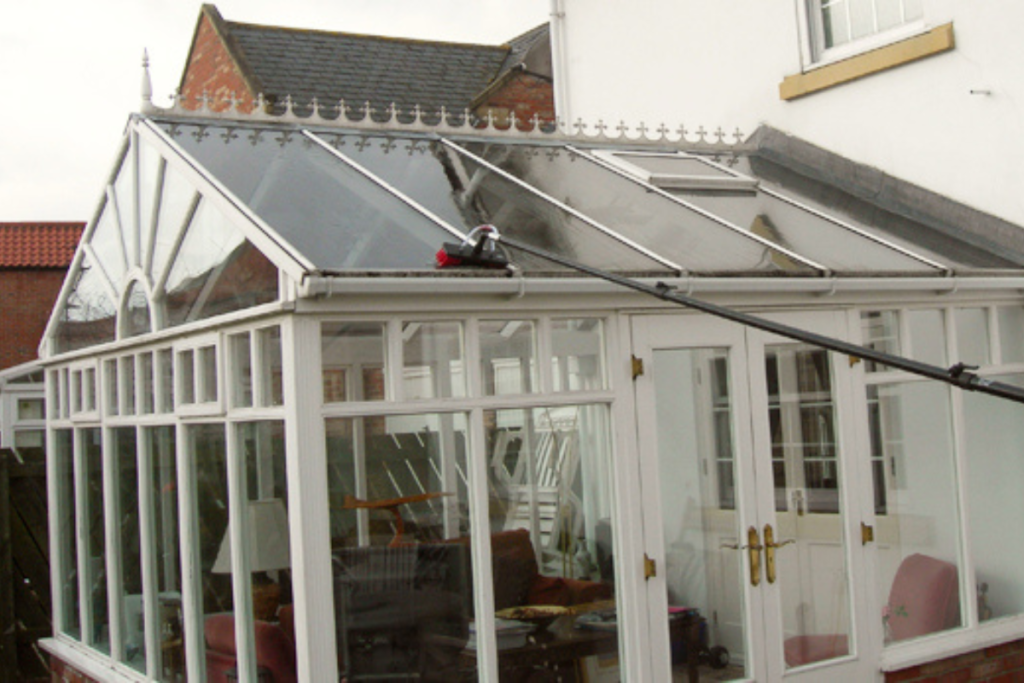
What to Charge
Setting the right prices for your conservatory cleaning services is important. Charge too little, and you won’t make a decent profit. Charge too much, and you might struggle to attract customers. The cost of conservatory cleaning varies depending on factors like size, level of dirt, access difficulty, and whether the customer wants both interior and exterior cleaning.
Average UK Conservatory Cleaning Prices
According to Checkatrade, the typical price ranges for conservatory cleaning in the UK are as follows:
- Exterior cleaning only – £125 to £195, with an average cost of £160
- Interior and exterior cleaning – £300 to £650, with an average cost of £475
- Roof cleaning only (per panel) – £10.50 to £13.50, with an average cost of £12 per panel
For a basic exterior clean, such as removing dirt, moss, and algae from the glass and frames, you’re looking at around £125 for a small lean-to conservatory, rising to £195 or more for larger or more intricate designs.
If a customer wants a full deep clean, including interior glass, sills, doors, and a thorough roof cleaning, the cost can reach up to £650, especially if they request a specialist treatment, such as water-repellent coatings on glass panels or restoring discoloured uPVC frames.
Factors That Affect Pricing
Several factors can influence how much you charge for each job:
- Size and shape of the conservatory – Larger conservatories take longer to clean and require more cleaning solution and effort.
- Level of dirt and staining – A conservatory that hasn’t been cleaned in years and has severe algae growth will take much longer to restore than one that’s regularly maintained.
- Access – If you can easily reach all areas with a water-fed pole, the job will be quicker. If ladders or specialist equipment are needed, you may need to charge more.
- Extra services – Many homeowners will pay extra for additional services such as gutter cleaning, restoring faded UPVC to its original white colour, or lubricating locks and hinges.
Pricing Strategies
When setting your prices, it’s important to research local competitors. If others in your area are charging £150 for an exterior clean, you don’t want to be charging £100 and undercutting yourself. At the same time, if the average price is £160, charging £250 might put people off unless you offer a premium service.
One way to attract more customers is to offer discounts for regular cleaning contracts. For example, you could provide a 10% discount for customers who book a clean every six months. You might also offer bundle deals, such as conservatory plus gutter cleaning at a reduced rate.
Ultimately, your pricing should reflect the quality of your work and the effort involved. Many customers are willing to pay more for a professional who leaves their conservatory spotless and looking like new.
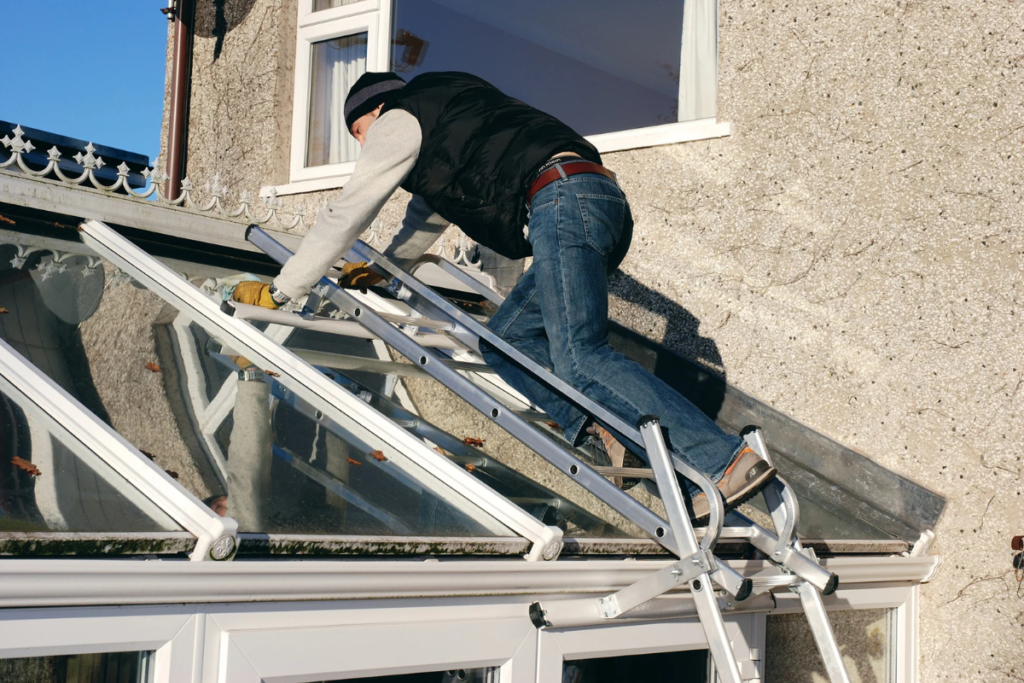
Expanding Your Services
Once you’ve built a solid customer base, consider offering additional services such as:
- Gutter cleaning
- Fascia and soffit cleaning
- Patio and driveway pressure washing
- Solar panel cleaning
Adding extra services can increase your income and make you a one-stop shop for exterior cleaning needs.
Managing Your Business
While taking cash payments is tempting, having a business bank account and accepting bank transfers or card payments looks more professional. It also helps to keep your accounts in order for tax purposes.
Keeping track of jobs, invoices, and expenses is easier with simple accounting software like QuickBooks or Xero. If you’re earning over £1,000 per year from self-employment, you must register with HMRC and complete a tax return.
Final Thoughts
Starting a conservatory cleaning business takes effort, but it can be a profitable and flexible venture with the right approach. Focus on providing a high-quality service, building a good reputation, and using smart marketing to attract customers. Over time, you can grow from a one-man operation to a business with employees, vehicles, and regular contracts. The key is to start small, reinvest your profits, and always go the extra mile for your customers.

